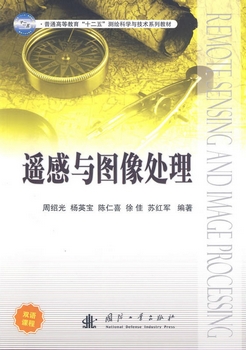金属氧化物纳米材料型气体传感器(英文版)
定价:¥45.00
作者: 沈岩柏,孟丹
出版时间:2014-11
出版社:东北大学出版社
- 东北大学出版社
- 9787551708166
- 191043
- 2014-11
- TP212
内容简介
沈岩柏、孟丹编著的《金属氧化物纳米材料型气体传感器(英文版)》主要介绍了目前金属氧化物纳米材料的研究方法,目的是为开发和优化新型气体传感器材料和技术提供基础知识。本书详述了金属氧化物纳米材料的基本理论、金属氧化物纳米材料的制备技术、金属氧化物纳米材料的表征技术、基于SnO2纳米材料型气体传感器、基于WO3纳米材料型气体传感器,以及金属氧化物纳米材料型气体传感器的未来。作者希望本书能为从事相关研究的学生、科研人员和操作者提供有关金属氧化物纳米材料型气体传感器的有关知识。
目录
Chapter 1 Metal Oxide Nanomaterial Gas Sensors: Introduction and Applications
1.1 Survey of Gas Sensors
1.2 Classification of Gas Sensors
1.2.1 Methods Based on Electrical Variation with Different Materials
1.2.2 Methods Based on Variation of Other Properties
1.2.3 Summary and Comparison for Different Gas Sensing Methods
1.3 Application and Perspective of Metal Oxide Nanomaterial Gas Sensors
References
Chapter 2 Basic Theory of Metal Oxide Semiconductor Gas Sensors
2.1 Gas Sensing Mechanism
2.2 Reaction between Gases and Metal Oxide Semiconductor Gas Sensors
2.3 Effect of Noble Metal Doping
2.4 Microstructure Model of Metal Oxide Sputtered Films
2.5 Growth Mechanisms of Nanowires
2.5.1 Vapour-Liquid-Solid (VLS) Mechanism
2.5.2 Vapour-Solid (VS) Mechanism
References
Chapter 3 Fabrication Techniques of Metal Oxide Nanomaterials
3.1 Physical Vapour Deposition (PVD)
3.2 Chemical Vapour Deposition (CVD)
3.3 Sol-Gel
3.4 Spray Pyrolysis
3.5 Screen Printing
3.6 Drop Coating
3.7 Comparison of Different Fabrication Techniques
References
Chapter 4 Characterization Techniques of Metal Oxide Nanomaterials
4.1 X-ray Diffraction
4.2 Scanning Electron Microscopy
4.3 Transmission Electron Microscopy
4.4 X-ray Photoelectron Spectroscopy
4.5 Scanning Probe Microscopy
4.6 Physical Adsorption Isotherm Method
4.7 Film Density
4.8 Other Characterization Techniques
4.9 Measurement of Gas Sensing Properties
References
Chapter 5 SnO2-based Nanomaterial Gas Sensors
5.1 SnO2 Thin Films
5.1.1 Preparation
5.1.2 Microstructure
5.1.3 Gas Sensing Properties
5.2 SnO2 Nanowires
5.2.I Preparation
5.2.2 Microstructure
5.2.3 Gas Sensing Properties
5.3 SnO2 Nanorods
5.3.1 Preparation
5.3.2 Microstructure
5.3.3 Gas Sensing Properties
References
Chapter 6 WO3-based Nanomaterial Gas sensors
6.1 WO3 Thin Films
6.1.1 Preparation
6.1.2 Microstructure
6.1.3 Gas Sensing Properties
6.2 WO3 Nanowires
6.2.1 Preparation
6.2.2 Microstructure
6.2.3 Gas Sensing Properties
6.3 WO3 Nanoparticles
6.3.1 Preparation
6.3.2 Microstructure
6.3.3 Gas Sensing Properties
References
Chapter 7 Future of Metal Oxide Nanomaterial Gas Sensors
7.1 Material Design for Metal Oxide Nanomaterial Gas Sensors
7.2 For Innovations of Metal Oxide Nanomaterial Gas Sensors
7.2.1 Innovative Sensors
7.2.2 Intelligent Sensors
7.2.3 Hybrid Systems
Reference
1.1 Survey of Gas Sensors
1.2 Classification of Gas Sensors
1.2.1 Methods Based on Electrical Variation with Different Materials
1.2.2 Methods Based on Variation of Other Properties
1.2.3 Summary and Comparison for Different Gas Sensing Methods
1.3 Application and Perspective of Metal Oxide Nanomaterial Gas Sensors
References
Chapter 2 Basic Theory of Metal Oxide Semiconductor Gas Sensors
2.1 Gas Sensing Mechanism
2.2 Reaction between Gases and Metal Oxide Semiconductor Gas Sensors
2.3 Effect of Noble Metal Doping
2.4 Microstructure Model of Metal Oxide Sputtered Films
2.5 Growth Mechanisms of Nanowires
2.5.1 Vapour-Liquid-Solid (VLS) Mechanism
2.5.2 Vapour-Solid (VS) Mechanism
References
Chapter 3 Fabrication Techniques of Metal Oxide Nanomaterials
3.1 Physical Vapour Deposition (PVD)
3.2 Chemical Vapour Deposition (CVD)
3.3 Sol-Gel
3.4 Spray Pyrolysis
3.5 Screen Printing
3.6 Drop Coating
3.7 Comparison of Different Fabrication Techniques
References
Chapter 4 Characterization Techniques of Metal Oxide Nanomaterials
4.1 X-ray Diffraction
4.2 Scanning Electron Microscopy
4.3 Transmission Electron Microscopy
4.4 X-ray Photoelectron Spectroscopy
4.5 Scanning Probe Microscopy
4.6 Physical Adsorption Isotherm Method
4.7 Film Density
4.8 Other Characterization Techniques
4.9 Measurement of Gas Sensing Properties
References
Chapter 5 SnO2-based Nanomaterial Gas Sensors
5.1 SnO2 Thin Films
5.1.1 Preparation
5.1.2 Microstructure
5.1.3 Gas Sensing Properties
5.2 SnO2 Nanowires
5.2.I Preparation
5.2.2 Microstructure
5.2.3 Gas Sensing Properties
5.3 SnO2 Nanorods
5.3.1 Preparation
5.3.2 Microstructure
5.3.3 Gas Sensing Properties
References
Chapter 6 WO3-based Nanomaterial Gas sensors
6.1 WO3 Thin Films
6.1.1 Preparation
6.1.2 Microstructure
6.1.3 Gas Sensing Properties
6.2 WO3 Nanowires
6.2.1 Preparation
6.2.2 Microstructure
6.2.3 Gas Sensing Properties
6.3 WO3 Nanoparticles
6.3.1 Preparation
6.3.2 Microstructure
6.3.3 Gas Sensing Properties
References
Chapter 7 Future of Metal Oxide Nanomaterial Gas Sensors
7.1 Material Design for Metal Oxide Nanomaterial Gas Sensors
7.2 For Innovations of Metal Oxide Nanomaterial Gas Sensors
7.2.1 Innovative Sensors
7.2.2 Intelligent Sensors
7.2.3 Hybrid Systems
Reference




